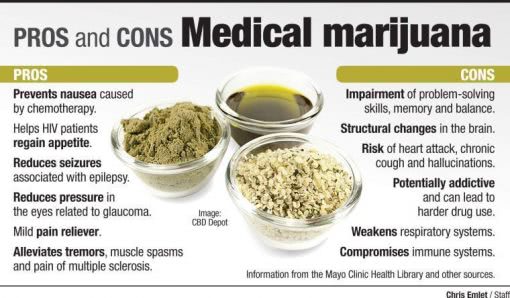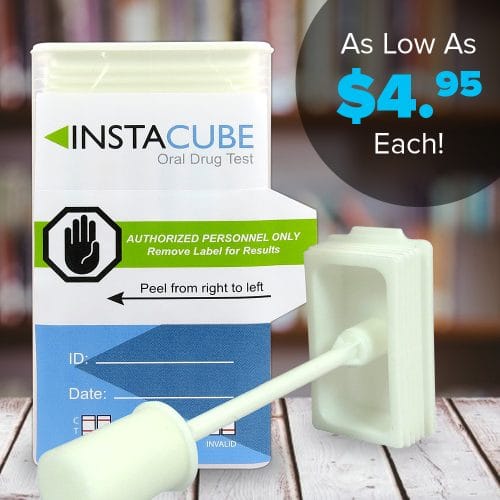Drug testing in the workplace is still considered by some to be controversial, with laws and privacy requirements varying from state to state, it can present a challenge to a company trying to create a comprehensive drug testing policy. The impact of substance abuse by employees is something that needs to be addressed, but what is the best way to put together a plan that meets the legal, personal and company goals for managing a complicated issue. It is important that the policy you create provides protection for both employees and the business. With drug testing being mandatory in many businesses, medical facilities and even schools, knowing how to approach a policy that meets your needs, and still respects your employees, can be crucial in creating a program that makes your employees feel valued.
It is always a good idea to involve your employees in the process of building a new policy or modifying an existing policy. By allow them to share their thoughts and concerns, you can ensure that the policy you create will be well received by your employees. Also, they will be familiar with the policy and not surprised should they be asked to submit to a drug test.
Creating a Pre-Employment Drug Testing Policy
Drug testing as a condition of being hired is a common practice for many businesses when you are creating a pre-employment testing system. While your prospective hire can choose to decline to take a drug test, your program should also give you as the employer the right to rescind the offer. There is no set of rules regarding pre-employment testing, should a candidate for hire refuse to complete your drug test, you can choose to withdraw their candidacy. If your company employs union workers, any pre-employment testing must first be approved and addressed in any labor agreements. Additionally, the language in your pre-employment screening policy must provide the applicant with how the test will be administered, for example by urine or hair sample, and where it will be conducted, in-house or at an approved laboratory. While no set federal law creates parameters on drug testing for potential employees, state laws may restrict or prohibit some policies based on employee rights legislation. It is important that you check with your state government before creating a pre-employment drug testing policy.
Drug Testing Existing Employees
While pre-employment testing may be common for most businesses, testing of existing employees can be more challenging regarding policy creation. State law tends to be more protective of employee rights regarding drug testing. When you are creating policy, you need to make sure you are aware of the rights of your employees as defined by state government. You may have a set of circumstances under which you can screen your current employees. However, there is usually a set policy that allows you to drug test employees under certain parameters; if an employee appears under the influence of drugs and is a threat to themselves or other employees, the employee had an accident or injury and drugs is the suspected cause, or if the employee is openly under the influence drugs or taking drugs in the workplace. Administering drug tests in this situations is typically acceptable regardless of state and local laws. Some professions, like transportation and construction, or factories where employees use dangerous chemicals and heavy machinery are mandatory under state laws. Should your business fall into one of these categories, or other categories as designated by your state laws, you should always include all applicable items in your drug testing program.
Handling Situations in the Workplace
Once you have completed the testing portion of your substance abuse policy, you will next want to create a section of the program that will deal with situations that may arise in the workplace. You should have designated people in place that have been prepared to support an employee that may be under the influence. You should also include clear instructions on when to contact law enforcement if an escalated episode may present itself. It is important that any policy is designed to protect not only the employees that work in the office but also the person who is under the influence of drugs or alcohol. It is important to educate all employees when a new policy is in place, so they know not only what to look for, but also understand that substance abuse is a medical concern. Employees dealing with drug or alcohol addiction need help, and should not be ostracized or belittle in front of their co-workers. By building into your plan a clear directive on how to allow your workers to reach out privately if they think someone is abusing drugs or alcohol you can protect both the employees that share information but also the person who is at risk and needs help.
Managing Medical Marijuana
With many states passing medical marijuana laws, it is important to understand the legal parameters in your state and how to incorporate medical marijuana use in your program. States can set rules regarding 
Employee Assistance Program
Your drug testing policy should be centered around the idea that the primary goal is to help your staff who may be dealing with substance abuse and addiction problems. Integrating an employee assistance program into your drug testing policy is a critical part of why the policy is in place. The goal of a drug testing policy is not just to find employees and terminate them for using drugs.
Partnering with an EAP organization will allow you to get needed support and care for employees that may be dealing with a dangerous addiction. It is important that in your program you clearly indicate the reaching out to the EAP is confidential. The added benefits are that most EAP organizations do more than just provide support for substance abuse issues, they can also provide all of your employees with help for a variety of challenges.
By adding an employee assistance option as part of our overall benefits program, and incorporating it into your drug testing and management policy, you are providing a source that allows employees to reach out for help on their own. When employees feel like they can address issues in a confidential setting, the will be more likely to reach out regarding addiction or substance abuse issues.
Education on Drug Policy
Before you introduce your policy company-wide, you will want to reach out to your managers to train them on the policy and how to enforce the policy. It is also important that your policy is introduced as a positive move for the company. You will need all employees to buy into the program and see it as a beneficial as it keeps the workplace safe.
Your manager training program should include the following items:
- A full review of the policy in detail
- Review of document and plan to present the program to their respective teams
- How to prepare for questions from employees and how to respond
- How the supervisor enforces the policy and what their responsibilities are
- What to do if they are suspicious of an employee
- Instructions on how to manage the various situations outlined in the plan; this should include role play activities and tips on documentation
- Sign-off form that confirms they understand the policy and how to enforce the policy
Once your managers are adequately trained, they should then meet with their teams and roll out your new or revised drug testing and management plan. You want to make sure that your employees have a clear understanding of the system, and present it as a program designed to keep the workplace safe for all employees.
When you have a clear and vigorous drug testing and abuse policy in place, you can have confidence in dealing with the stressful situations if and when they occur. Creating a safe and productive workplace will benefit you, and all of the employees that trust you each day to keep then secure.



